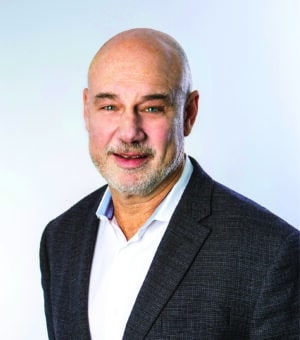Bruce Platzman
CEO, AIS
Age: 63
Industry experience: 30 years
After the 9/11 attacks, Leominster-based office furniture manufacturer AIS sprang into action producing 2,500 workstations for employees displaced from the Pentagon. As the U.S. responds to the spreading COVID-19 pandemic, AIS has dedicated a portion of its output to the production of cloth masks for local first responders, while at the same time delivering office furniture to public agencies and hospitals that are setting up new emergency command centers. Bruce Platzman founded the company in 1989. AIS relocated in 2014 from several facilities in Hudson to a 600,000-square-foot factory in Leominster which currently employs more than 700 people.
Q: How is the COVID-19 crisis changing the nature of your business?
A: From the furniture standpoint, we have antimicrobial fabrics and we can add those to seating products and partitioning and screens, vinyls that can be wiped down easily with disinfectants and the laminate products are also very conducive to being wiped down and responsive to sprays. Firms want furniture quickly and something they can wipe down. The crisis is now. It’s not 12 weeks from now.
One of the things we’re really good at is having the quickest lead times in the industry. Brigham & Women’s Hospital was doing a small project opening a triage center, and they approached us on [April 3] and we delivered the product [April 7]. It was a desk with height adjustability, to check people in and process paperwork quickly, 100 percent COVID-19-related.
Q: What are your major product lines?
A: With collaborative or open workspaces, ergonomics become an important focus. Today, we very rarely sell a workstation that isn’t height-adjustable. Ergonomics also is technology: Your computers and your screens are adjustable for angle and height. And seating is important. Does your chair adjust? We’ve responded with additions to our product lines, anything from the splash guards that you see at retail stores, and screens to create privacy between two people.
Q: How has your production shifted to new lines such as personal protective equipment?
A: Through our supply chain, we secured KN95 masks which we’ve donated to local hospitals: 1,000 to UMass Memorial Medical Center, 1,000 to Brigham and Women’s and also some to Leominster Hospital. That falls under what I’d call being a good corporate citizen. I have no interest in selling them. We’re buying them and donating them as fast as we get them.
We also do a lot of upholstered seating, so we’ve been converting to [manufacturing] masks and last week we asked UMass Memorial Medical Center to test them in their infectious disease section. We’re up to 1,000 and donating them to first responders in Leominster and Fitchburg and expanding into Worcester. We’re making several hundred a day. The fabric’s outer layer is antibacterial and resistant to liquid.
Q: Prior to the COVID-19 outbreak, how had the revolution in open office space designs affected your business?
A: Up until five years ago, we were a panel manufacturer with ancillary lines, and fortunately for us we were able to see that corporate America was transitioning to more open environments. A lot of companies don’t have assigned seating. So, we’ve seen that, and there’s pros and cons to it. If you have a heads-down task where you need to concentrate, it’s probably not the best environment. It’s not one size fits all. Most organizations need a combination of private offices or paneling and ways of housing people with privacy.
Q: Which metros and industries make up the bulk of our clientele?
A: Massachusetts is No. 1 and New York City is our No. 2 market, followed by the mid-Atlantic, and Texas and Chicago. Probably 25 percent is in hospitals and health care agencies and biotech firms.
Q: How have previous economic downturns affected your business?
A: 2008-2009 was really rough for everybody, and our industry went down about 40 percent. AIS was down a lot less but we did take a step back and had to make cutbacks. Corporate America was reluctant to invest in expansions and renovations. There’s a lot of companies that are hitting pause now, and we’re going to see that wave until this ends and there will be pent-up demand and it will come back quickly. I’m holding onto 96 percent of our employees.
Platzman’s Five Favorite Travel Destinations
- Santorini, Greece
- Lake Como, Italy
- Nantucket, Massachusetts
- Park City, Utah
- Paris, France




 |
| 
